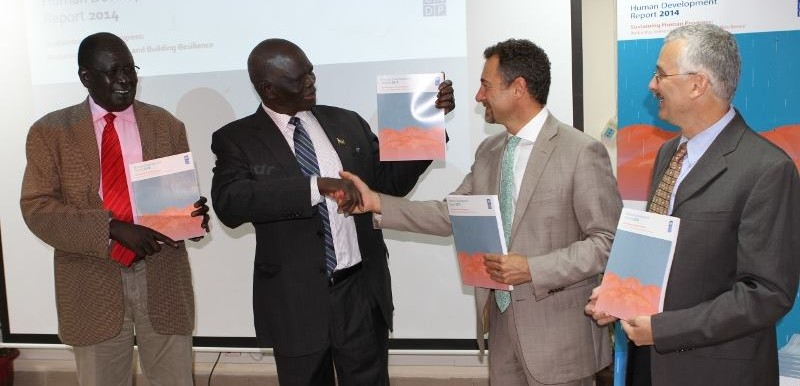The UN Development Programme in South Sudan has blamed the government’s budget crisis and ongoing conflict for some “shortcomings” in health projects that it is running in the country in cooperation with the government.
The statement comes in response to a report published by Radio Tamazuj on 21 October, in which an audit report by the Office of Inspector General (OIG) of the Global Fund for AIDS, Tuberculosis, and Malaria is repeatedly cited.
The audit report states that the UN agency has been spending money on construction of government buildings that remain vacant, has trained health workers who left their jobs and purchased equipment that has been used improperly or not at all. The auditors found that 26 of 46 buildings built under a $40+ million grant to UNDP have defects or are not in use.
In a statement Tuesday, UNDP declined to accept responsibility for failings in project design or implementation.
The agency instead referred to the government’s “increasingly difficult budgetary situation.” The government spends approximately 60% of its budget on its military, police and other security and ‘rule of law’ services compared to less than 3% on the health care sector, according to the FY budget 2015/16. Additionally, the average health worker in South Sudan has seen his or her salary decline significantly in relative value owing to wartime inflation.
“A number of the shortcomings raised in the report of the OIG are directly caused by the impact of the conflict and the increasingly difficult budgetary situation,” stated Balázs Horváth, UNDP Country Director.
Nonetheless, Horváth cited “notable achievements” under the Global Fund grants include the construction of Juba School of Nursing dormitory and Wau Midwifery School dormitory, the construction of 13 ante-natal clinics, 4 maternity wards, 4 monitoring offices, 2 community resources centers and 6 laboratories.
Although these buildings are “all functional and providing the intended services,” other buildings constructed by UNDP using Global Fund money have remained unused or have been abandoned. Horváth predicted that more of the buildings and equipment will be used after peace comes to South Sudan: “The Peace Agreement now in place holds the promise of significantly improved utilization of GF (Global Fund)-supported assets in the future.”
UNDP also cited its joint management with the Ministry of Health of the supply chain for all HIV/AIDS and TB drugs, saying that it is supporting the provision of diagnostic and treatment services in over 86 TB facilities and 18 HIV treatment centers.
However, a health worker speaking to Radio Tamazuj last week reported “inadequacy of the service rendered in the field of Health (HIV/AIDs, Syphilis and Tuberculosis)” in Akobo in Jonglei State.
The health worker, who asked not to be named for fear of being removed from duty said, “We haven’t received any HIV/AIDs, and syphilis test kits and drugs since the outbreak of the conflict in South Sudan.” He said they ran out of “uni-gold and Bio-lin, test kids for HIV/AIDs… HB machines slides and RPR in entirety.”
“We do not have enough drugs for TB too,” he said.
UNDP’s full statement on the performance of its Global Fund grants is available here.
File photo: A photo from 2014 shows then Resident Representative of the UNDP Toby Lanzer (center right) with then Finance Minister Aggrey Tissa (center left) and UNDP Country Director Balázs Horváth at an event marking the launch of a development report (Credit: Tabani Joseph/UNDP)




